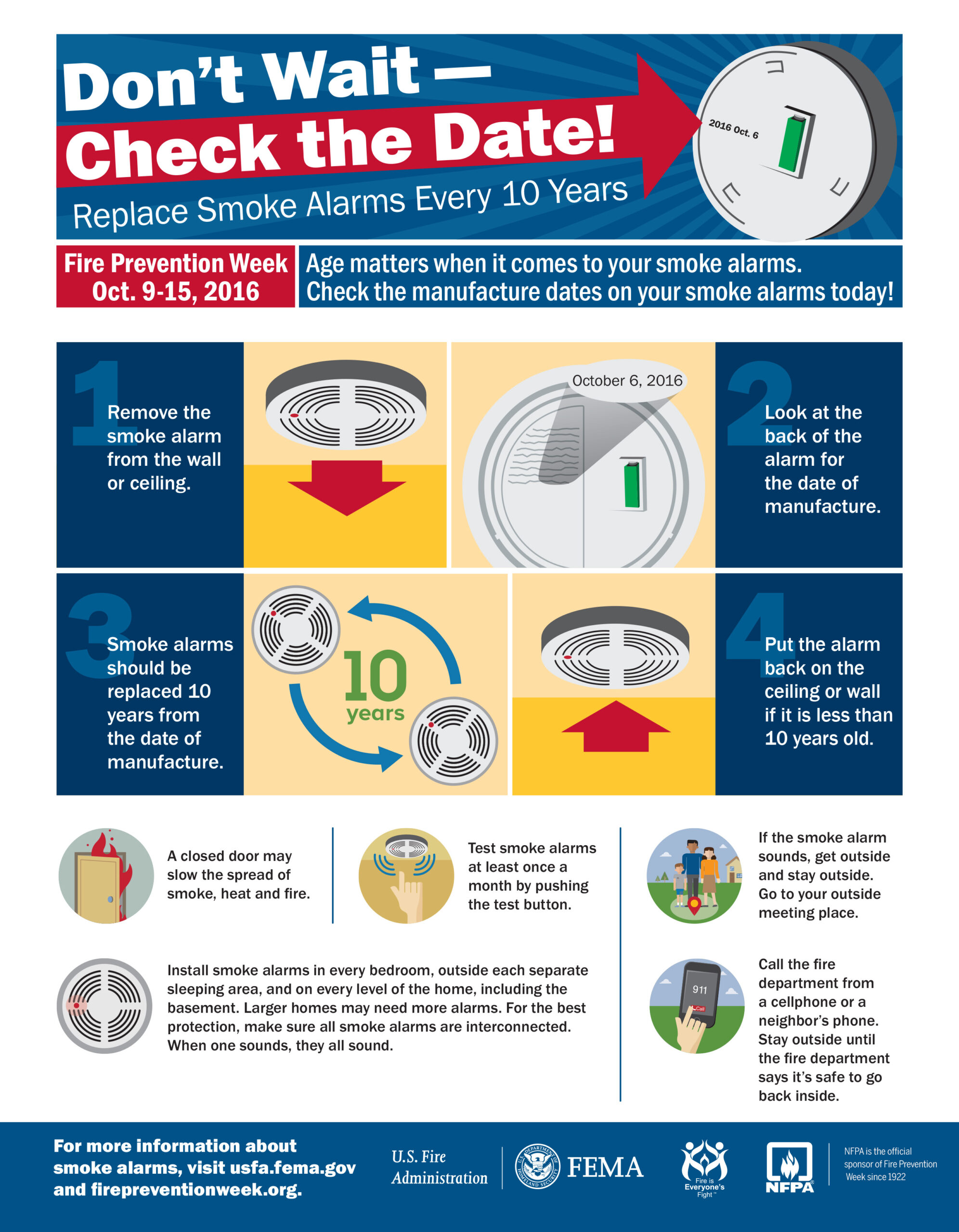Preventing Home Fires
It’s Fire Prevention Week and we want to help you protect one of your most valued assets, your home. The importance of working smoke alarms cannot be understated. The National Fire Protection Association (NFPA) has a great quiz that will test your smoke alarm knowledge.
The Importance of Smoke Alarms
- Three out of five home fire deaths in 2009-2013 were caused by fires in homes with no smoke alarms or no working smoke alarms.
- Working smoke alarms cut the risk of dying in reported home fires in half.
- In fires considered large enough to activate the smoke alarm, hardwired alarms operated 94% of the time, while battery powered alarms operated 80% of the time.
- When smoke alarms fail to operate, it is usually because batteries are missing, disconnected, or dead.
- An ionization smoke alarm is generally more responsive to flaming fires and a photoelectric smoke alarm is generally more responsive to smoldering fires. For the best protection, or where extra time is needed to awaken or assist others, both types of alarms, or combination ionization and photoelectric alarms are recommended.

leading causes of home fires
Knowing the facts on home fires can help you mitigate risks.
- Half of home fire deaths result from fires reported between 11 p.m. and 7 a.m. when most people are asleep. Only one in five home fires were reported during these hours.
- One quarter of home fire deaths were caused by fires that started in the bedroom. Another quarter resulted from fires in the living room, family room or den.
- Three out of five home fire deaths happen from fires in homes with no smoke alarms or no working smoke alarms.
- On average, seven people die in U.S. home fires per day.
- Cooking equipment is the leading cause of home fire injuries, followed by heating equipment.
- Smoking materials are the leading cause of home fire deaths.
- Most fatal fires kill one or two people. In 2014, 15 home fires killed five or more people resulting in a total of 88 deaths.
- During 2009-2013, roughly one of every 335 households had a reported home fire per year.
CAUSES
Here are some helpful tip sheets to help protect you, your loved ones, and your property.
- Cooking (PDF)
- Candles (PDF)
- Religious candles (PDF)
- Heating (PDF)
- Smoking (PDF)
- Electrical (PDF)
Sources:
NFPA’s website ©2016 NFPA.



